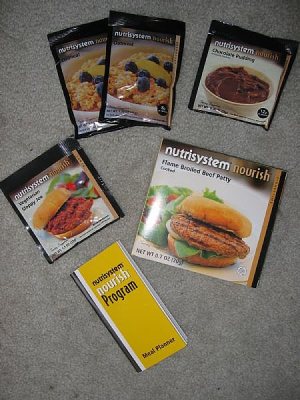Nourishment
WATCH THIS CARD AS A VIDEO
Nourishment is a core theme for anyone incarnating as a mammal. Part of the definition of being a mammal is that we begin life receiving nourishment from another mammal's body. We are part of a vast food chain, many parts invisible to our ordinary perception, and nourishment, in many senses, is crucial to our incarnation. The first and most obvious aspect of nourishment is the food we eat. Food is a part of the external universe that we take into our bodies and out of which we fuel and form our bodies. Depending on your version of physics, matter is congealed energy, information, and consciousness. All food is a stepping down or transduction of solar energy. Plants use solar energy and convert it, step it down into carbohydrates, protein and fat. Food closer to the original sunlight, such as an orange we just pulled from a tree, has a bioenergetic vitality not found in a factory-fresh, food-like substance wrapped in cellophane at the gas station. Rudolph Steiner said that most people couldn't become conscious past a certain point because they ate a diet that was too inferior to support a higher state of consciousness. The food we choose to nourish ourselves with affects us on every level, from the cellular to the spiritual. Michael Pollan has boiled his nutritional advice down to a single sentence, "Eat food, mostly plants, not too much." Pollan suggests we eat "food" and not what he calls, "food-like substances." "Real food for Real People." — Ad slogan for Nutrisystem, a company that sends pre-packaged diet foods to subscribers through the mail. 
 (What Real Food looks like according to Nutrisystem.) (What Real Food looks like according to Nutrisystem.)
What is sold as "real" food is often a food-like substance, a laboratory concoction deceptively packaged and marketed. Actual real food is food that allows you to visibly recognize the plants or animals it's sourced from. Food is not the only thing we nourish ourselves with. As social mammals, we need to be nourished by relationships, or we become nonviable. We also nourish ourselves with places, things, and culture — movies, music, books, events, journeys, and so forth; all of these are foods or medicines entering our inner cauldron, and each exists somewhere in the spectrum of nourishing to toxic. But this is still only the passive aspect of nourishment. The active inflection of nourishment concerns the question: What and whom do we nourish? We cannot just be eaters and consumers of various forms of nourishment; we must also be nourishers. On what and on whom do you bestow your nourishment? If you have trouble answering that question, you are not being honest with yourself. What you nourish is what you spend time on, what you spend your money on, your sexual chi, your bodily, emotional, cognitive/spiritual energies. What you choose to nourish, like what you nourish yourself with, exists on a spectrum of nourishing to toxic. We can spend our time and money supporting internet porn sites, or we can spend our time helping those who have the potential and will to become conscious. The spectrum of people we could choose to nourish ranges from, on the dark end, greedy black holes who will take you for whatever you are worth and use the energy they are given for their insatiable appetites, generating collateral damage in the process. On the other side of the spectrum, he most force-multiplying, synergistic, and symbiotic choice for bestowing nourishment is on those who are themselves capable of being illumined because through them, you help to illumine the whole world. As is pointed out in hexagram 27 of the I Ching, "Providing Nourishment," you can tell whether a person is inferior or superior based on what they choose to nourish themselves with and on what or on whom they choose to bestow their nourishment. The I Ching also warns us not to indulge "nourishment that does not nourish." We should minimize entertainment eating and maximize nutritious eating. From the Wilhelm/Baynes I Ching: He who seeks nourishment that does not nourish reels from desire to gratification and in gratification craves desire. Mad pursuit of pleasure for the satisfaction of the senses never brings one to the goal. One should never . . . follow this path, for nothing good can come of it. From the Zap Oracle card Survivor,
Few things are as likely to wreck the quality and quantity of your life than poor nutrition. Industrial food scientists are well aware that a fat, sugar, salt combo is as addictive as cocaine and use that trio to enslave people to toxic food-like substances. Though much of the research on human nutrition is highly flawed and unreliable, there is no controversy about SAD (the Standard American Diet, which is now the standard in much of the world) being highly toxic. Avoid foods that make health claims. They're usually highly contrived food-like substances with long ingredient lists.  Avoid anything that says "low fat" (they took out the healthier calories and replaced them with sugar or high-fructose corn syrup). Be wary of any food products that use the word "natural" on the packaging (meaning they're not organic and probably have chemical pesticide residue), and avoid anything that has "natural flavors" in the ingredient list. Natural flavors — hmm, is that an extract of the natural-flavor plant? Notice that "natural flavors" doesn't specify any ingredient, so what exactly is it? Simple — according to the FDA, "the term natural flavor or natural flavoring means the essential oil, oleoresin, essence or extractive, protein hydrolysate, distillate, or any product of roasting, heating or enzymolysis, which contains the flavoring constituents derived from a spice, fruit or fruit juice, vegetable or vegetable juice, edible yeast, herb, bark, bud, root, leaf or similar plant material, meat, seafood, poultry, eggs, dairy products, or fermentation products thereof, whose significant function in food is flavoring rather than nutritional." In other words, it is a toxic word salad of legalese and food technology jargon, creating a definition expansive enough that tanker cars filled with factory-fresh natural flavors pass through it every day. Although much nutritional research is of very poor quality, the basics are not in dispute. But there is also no such thing as the one perfect diet for all people. People tend toward ideological dietary paradigms and double down on those with religious intensity, but the evidence is that people can thrive on highly divergent diets. See the book, Diet Cults. Rudolph Steiner points out another aspect of nourishment, the possibility of our becoming food for parasitic entities as reported by almost every culture across time. There are beings in the spiritual realms for whom anxiety and fear emanating from human beings offer welcome food. When humans have no anxiety and fear, then these creatures starve. People not yet sufficiently convinced of this statement could understand it to be meant comparatively only. But for those who are familiar with this phenomenon, it is a reality. If fear and anxiety radiate from people and they break out in panic, then these creatures find welcome nutrition and they become more and more powerful. These beings are hostile towards humanity. Everything that feeds on negative feelings, on anxiety, fear and superstition, despair or doubt, are in reality hostile forces in supersensible worlds, launching cruel attacks on human beings, while they are being fed. Therefore, it is above all necessary to begin with that the person who enters the spiritual world overcome fear, feelings of helplessness, despair and anxiety. But these are exactly the feelings that belong to contemporary culture and materialism; because it estranges people from the spiritual world, it is especially suited to evoke hopelessness and fear of the unknown in people, thereby calling up the above mentioned hostile forces against them. Source (German): Rudolf Steiner – GA 56 – Die Erkenntnis der Seele und des Geistes – Berlijn, December 12, 1907 (page 145) Translated by Nesta Carsten-Krüger For more on this perspective, see the mind parasite section in the categories menu of this site. See also: Tempted by Inferior Nourishment Matrix Injection |
||||||||



